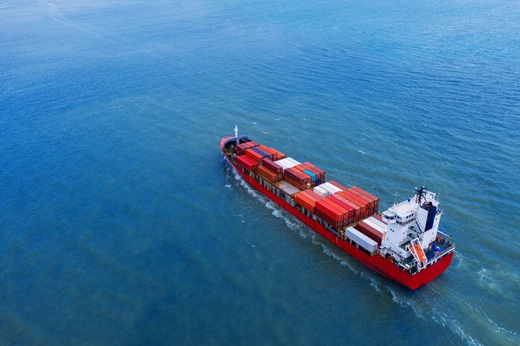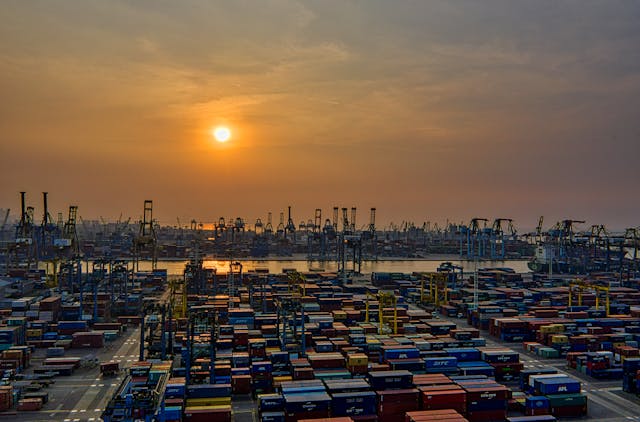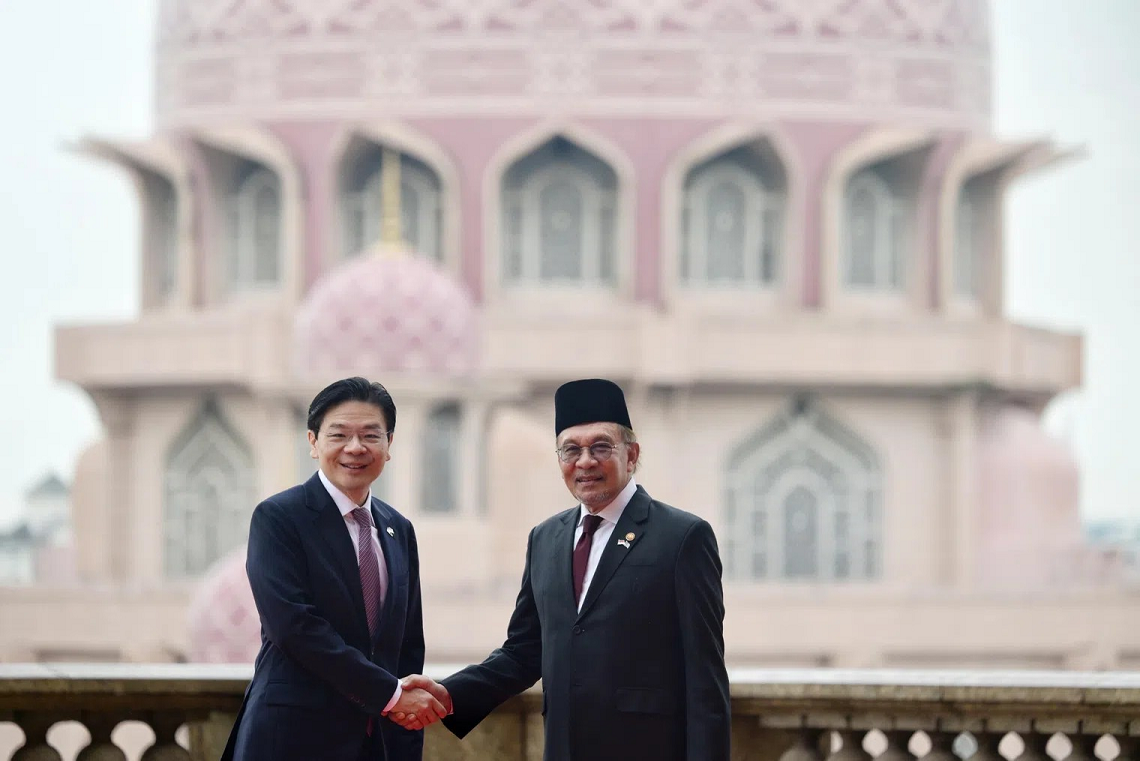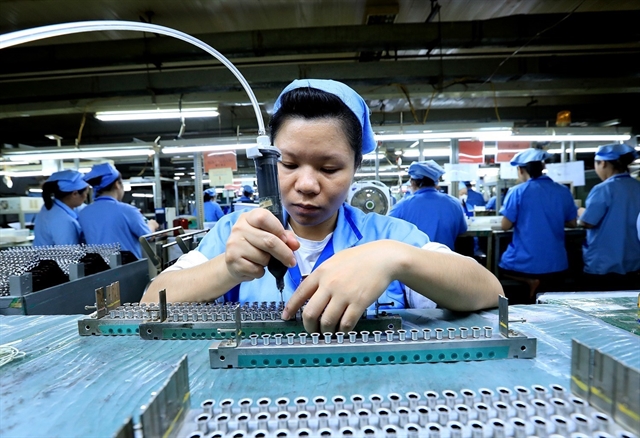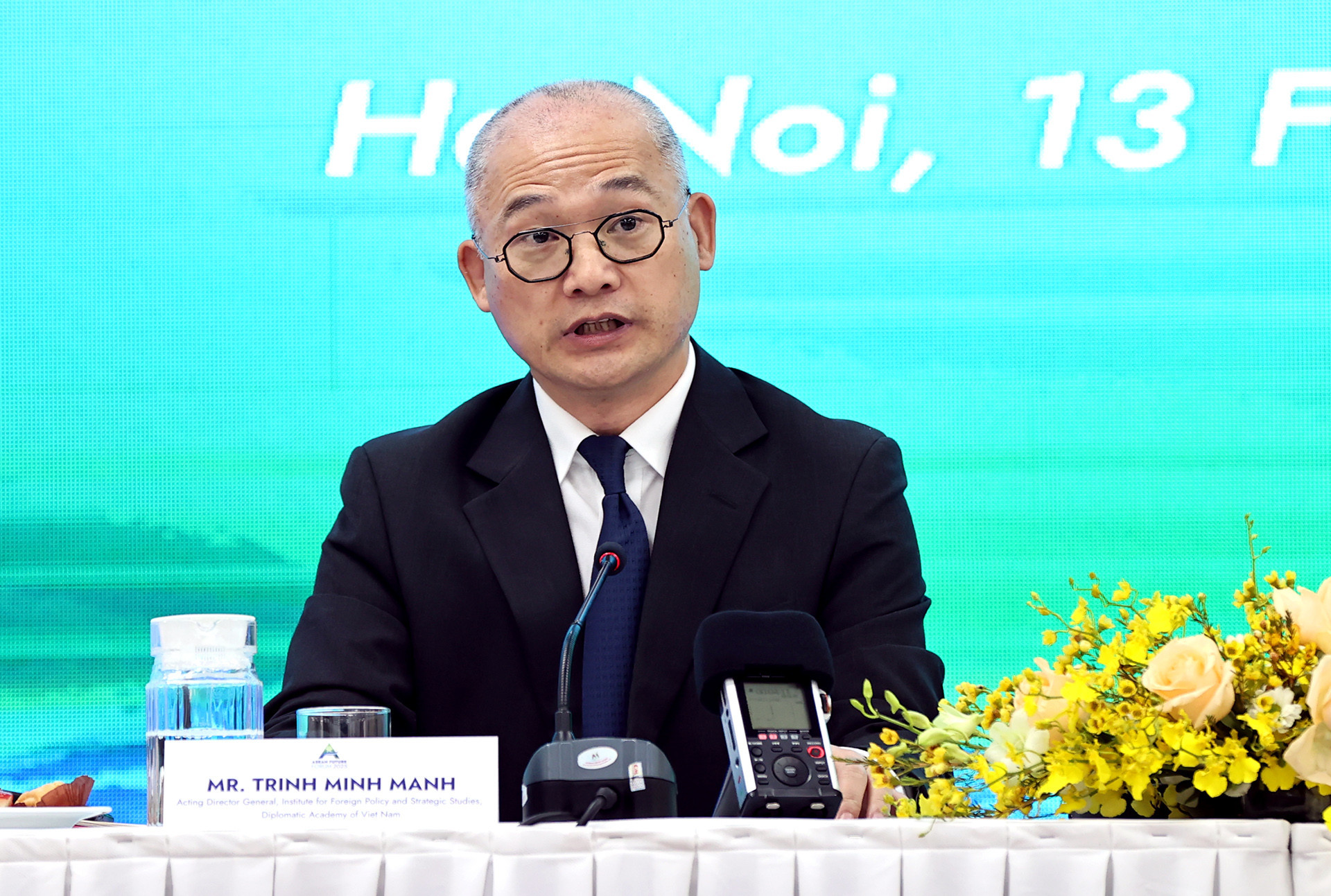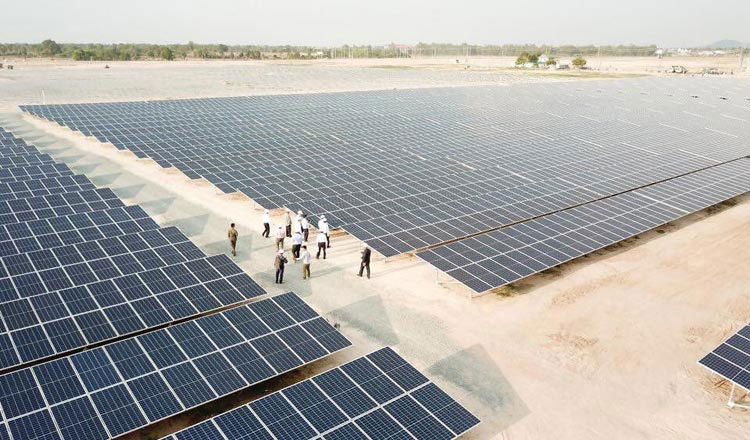- Human Capital: Investing in education and skills training.
- Infrastructure: Developing transport networks, digital infrastructure, water management, and energy systems.
- Innovation: Fostering innovation across industries.
- Government Support: Providing supportive policies, regulations, and a business-friendly environment.
The Thai government wants a free trade pact with the EU by the end of the year to better compete with rivals.
The EU is a vital market for Thailand, as the 27 member countries have significant purchasing power, making it the world's second-largest economic bloc. The EU ranks as Thailand's fourth-largest trading partner after China, the US and Japan. Thai exports to the EU tallied $24.2 billion, while imports from the EU totalled copy9.3 billion, resulting in a trade surplus of $4.88 billion.
What are the opportunities for Thai businesses with an Eu pact?
The DTN said an EU-Thailand FTA will enhance trade and investment opportunities by reducing or eliminating trade and investment barriers, including tariff and non-tariff measures. The pact is expected to stimulate foreign investment and foster growth in key sectors where Thailand excels, such as wholesale and retail, food production and tourism, noted the department.
Key export products likely to benefit from the FTA include agricultural and processed products (such as rice and canned pineapples), seafood (shrimp and squid), electronics (computers and circuit boards), and industrial goods (automobiles, motorcycles and components), noted the DTN.
However, the department cautioned that certain Thai industries must prepare for increased competition from EU imports, such as machinery and equipment, chemicals, dairy products, financial and insurance services, telecom, environmental services, and professional services. To compete effectively, Thai exporters will need to enhance their standards to align with EU regulations, which highlight safety, environmental sustainability, labour rights and energy efficiency.
Read more: Click!
High-flying local start-ups valued at over US$1 billion (S$1.3 billion) – known as unicorns in the financial world – are seeking growth opportunities amid challenges on several fronts.
Bosses told The Straits Times that their companies are expanding into overseas markets despite difficulties securing funding, regulatory hurdles and layoffs. Some are also weighing a share market listing, but they declined to specify a timing and location.
Mr Aaron Tan, co-founder and chief executive of used-car market Carro, said his company faced its “most difficult times” during the pandemic, just before it achieved unicorn status following a US$360 million capital injection from Temasek and Japan’s SoftBank Group in 2021.
“It was impossible to raise funds and we didn’t want to cut any headcount, which was super tough, given that sales had gone to zero,” he said.
“We came together to re-strategise quickly, management took pay cuts and looked into alternative revenue sources. The net result was that we continued to grow despite Covid-19.”
Carro has expanded its services to Japan and Hong Kong since hitting unicorn status, offering consumers and dealers the ability to buy and sell vehicles, along with insurance and financing options.
The firm is adding staff in these markets but has no concrete plans for expansion or hiring in Singapore at the moment. But it is recruiting artificial intelligence (AI) talent “globally” as the firm intends to boost AI usage in its operations, said Mr Tan.
He declined to reveal Carro’s valuation but said that it has never decreased, and is now “well over US$1 billion”.
Mr Tan said the company has been “ready from an accounting standpoint” for a share market listing and has hired more staff to prepare for it.
“Depending on the market conditions and what the funding environment is like, we will then pick the exchange to list the company,” he added, noting that any decision has to maximise shareholder interest.
Mr Gerald Goh, co-founder and Asia-Pacific chief executive of digital asset banking group Sygnum, said his firm has had to navigate regulatory hurdles, such as securing licences to operate as a regulated financial services provider for digital assets in both Singapore and Switzerland.
“It was a humbling process as we were pioneers in the industry and had to figure out how to apply the necessary regulatory guardrails and standard of care that clients in these jurisdictions expected,” he added.
Sygnum obtained a capital markets services licence in 2019 and a major payments institution licence in 2023, both from the Monetary Authority of Singapore.
Raising capital was another issue, as the start-up had to rely on more “traditional” investors, many of whom were sceptical about cryptocurrencies, Mr Goh said.
Sygnum reached unicorn status in January following a US$58 million fund raising led by Fulgur Ventures. Mr Goh said the funds will be used to drive the company’s entry in Europe, and launch operations in Hong Kong.
Mr Goh did not elaborate when asked if Sygnum had plans to list, but noted that it was important to take advantage of emerging developments, especially in the US.
Mr J.J. Ang, chief financial officer of home-grown online marketplace Carousell, said the company remains well-capitalised despite a tough funding environment and a 7 per cent headcount reduction in December 2024.
Carousell earned its unicorn label in 2021 after a US$100 million injection of funds from Korean private equity firm STIC.
Mr Ang did not rule out a share market listing, noting that the company is considering various “strategic exit options”.
“With a strong presence across seven key markets in South-east Asia, we are well-positioned to navigate the next phase of our journey,” he added.
Singapore produced 31 of South-east Asia’s 55 unicorns, noted an October 2024 report by business network Founders Forum Group and the Economic Development Board.
But a prolonged funding winter has gripped the global start-up ecosystem since 2021, as persistent high interest rates and geopolitical uncertainty drove investors towards safer assets.
A November report by Enterprise Singapore and research firm PitchBook said companies based here raised US$4.05 billion across 369 deals in the nine months ending September 2024, well under the US$8.2 billion raised from 486 deals in the same period in 2021.
Observers warn that local unicorns may face more challenges in the short term, but there are still growth opportunities in Singapore, as well as in key markets like the US or China.
Mr Junxu Lye, founder and chief executive of fintech start-up Acme Technology, noted that Singapore’s unicorns emerged during what was arguably South-east Asia’s first major tech boom from 2015 to 2021, raising money at high valuations.
But funding has dried up since 2021, and these companies have been forced to prioritise cashflow and profitability, thereby hampering their growth.
“This does not bode well for their billion-dollar valuations as the only way they can justify their unicorn status is growth, and not profits – their revenue is not at the scale where they are able to extract substantial profits,” Mr Lye said.
“In the near future, we should expect to see some correction in the form of smaller funding rounds and valuation cuts.”
Mr Lye added that Singapore’s status as a major financial services hub benefits early-stage fintech start-ups but companies looking to scale further have limited liquidity options beyond traditional venture-capital firms.
“Going public in the region is challenging because stock exchanges here have strict profitability requirements, and merger and acquisition activity is weak,” he said.
Mr Lye said some firms may need to chance their arm in the giant US market if they want to prosper.
“If you are a business-to-business (B2B) company, the answer is more likely yes,” he noted.
“The world’s leading B2B unicorns still generate more than 50 per cent of their revenue – and likely over 80 per cent of their profits – from the US.”
Mr Zen Chin, vice-chairman of SGTech’s Singapore Enterprise Chapter, said Singapore’s start-ups need to consider globalisation or regionalisation, and this means breaking into larger markets.
“Although many US or international venture-capital firms are headquartered in Singapore, the local and other South-east Asian markets have their limitations due to market size,” he added.
“But locations like the US, Europe and China have huge domestic markets which naturally increase the chances of a local start-up achieving unicorn status. More importantly, these markets also provide sufficient exit opportunities for venture-capital firms to make a return on their investments.”
Ms Emily Liew, assistant managing director for innovation at Enterprise Singapore, said start-ups here need to go global to grow: “Identifying the right market to go into in the first place can make a key difference in harnessing the boost for growth.”
Source: The Straits Times (Link HERE)
OCBC’S total sustainable financing for small and medium-sized enterprises (SMEs) grew by more than 40 per cent year on year, surpassing S$9 billion in 2024, up from more than S$7 billion in 2023.
As at Dec 31, 2024, the bank provided nearly 4,000 SMEs across Singapore and the region with sustainable financing – more than trebling from around 1,200 SME customers in 2023.
The sharp increase in such customers – and a corresponding decline in average loan sizes – reflects a push towards financing smaller SMEs, OCBC head of global commercial banking Linus Goh told reporters at a briefing on Tuesday (Feb 11).
Having built sustainable financing relationships with mid-to-large firms over the years, the bank has been able to “move within the value chain” to finance smaller players that supply to or work with these larger companies.
For smaller SMEs, loan sizes typically range from S$1 million to S$2 million, while mid-sized firms generally borrow between S$3 million and S$10 million, he said.
In 2024, OCBC extended sustainability-linked loans (SLLs) to more than 110 SMEs, more than quadrupling from the previous year.
Singapore-based SMEs accounted for about 80 per cent of these loans, with the remainder distributed across Malaysia, Hong Kong and Indonesia. The top three sectors were manufacturing, services and construction.
Unlike other forms of sustainable financing, SLLs require borrowers to meet sustainability performance targets at various stages of the loan.
To encourage more SMEs to take up SLLs, OCBC has partnered Enterprise Singapore (EnterpriseSG) to launch an initiative that provides funding support for SMEs to adopt carbon measurement tools and obtain environmental, social and governance (ESG) ratings.
Under the OCBC SME Start-ESG Programme, EnterpriseSG will fund up to 70 per cent of eligible costs for annual sustainability assessments over a three-year period.
To assess the sustainability performance of participating SMEs, OCBC has partnered sustainability platform EcoVadis and carbon management solution provider ESGpedia.
The bank expects 300 SMEs to participate in the programme over the next three years, with plans to eventually extend SLLs to these businesses.
On Tuesday, Goh also provided an update on the OCBC Women Unlimited programme, which was launched in April 2024 to support SMEs led by female entrepreneurs.
As at Dec 31, 2024, the bank had extended around S$50 million in loans to nearly 300 women-owned businesses.
Source: The Business Times (Link HERE)
EVEN as small and medium-sized enterprises (SMEs) grapple with rising business costs, they must continue to position themselves for long-term growth by expanding overseas and investing in upskilling, said Koh Kar Siong, DBS’ managing director and group head for corporate and SME banking.
The Covid-19 pandemic previously pushed many enterprises to strengthen their foundations, especially in digitally transforming their operations, he told The Business Times in an interview ahead of Budget 2025.
But SMEs are facing a new set of pressing challenges today, he pointed out, adding that the business environment has become increasingly uncertain amid global leadership changes and geopolitical tensions.
More businesses are also struggling to manage the rising costs of goods due to supply chain disruptions, and will have to either absorb these costs or pass them on to their customers.
SMEs must therefore re-evaluate their business models to ensure they remain resilient and relevant for the future, said Koh.
“Businesses can ask themselves: ‘Is there anything else we can do to make ourselves stronger and better, so as to tackle any other changes, disruptions and uncertainties that come along?’”
Managing costs, going global, upskilling
This current state of play has informed Koh’s personal wish list for Budget 2025; he hopes to see the government help SMEs to address immediate challenges and to position them for “long-term strategic play”.
First on his wish list is an extension of the corporate income tax rebate introduced in Budget 2024, as well as a higher cap. This will provide SMEs some short-term relief in battling rising costs, he noted.
Last year, companies were granted a rebate of 50 per cent of tax payable – capped at S$40,000 – for the year of assessment 2024, under the S$1.3 billion Enterprise Support Package rolled out for businesses.
Second, he is suggesting that more funding be handed out to support enterprises’ internationalisation efforts.
This includes increasing the quantum of the Market Readiness Grant (MRA), which helps SMEs to defray up to half of their eligible costs. The grant is currently capped at S$100,000 a company, for business activities related to overseas market promotion, business development and set-up.
Koh urged SMEs to set their sights abroad, given the limited size of Singapore’s domestic market.
He noted that regional markets such as Indonesia, Vietnam and India hold plenty of opportunities for SMEs to capture, particularly in the logistics, technology and renewable-energy sectors.
The upcoming Johor-Singapore Special Economic Zone will also pave the way for Singapore and Malaysia to capitalise on their complementary strengths and create cross-border business opportunities for their home-grown enterprises, he said.
For one, Singapore SMEs can tap Johor’s abundant land resources, raw materials and lower operating costs, while contributing skilled talent and know-how to the market. He added that Budget 2025 could also give a broad indication of possible tax incentives SMEs can expect for the zone.
Third, human capital development must go hand-in-hand with the reinvention of business models, said Koh.
“To reinvent your business model, you need to ensure that your workforce is ready for the change,” he said. “You will need the right people to help you carry through with the transformation.”
He noted that many SMEs continue to be bogged down by short-term cost challenges and are caught between tending to present survival and planning for the future.
Some business owners are concerned about productivity dropping in the short-term if they send employees for training, he said. And after these workers have upgraded their skills, the bosses worry about them being poached by their competitors.
“There’s always this fear, but you need to start somewhere,” he said. “For a company that has achieved sustainable growth and a strong culture, there’s no reason why staff would leave; instead, they will want to stay on and grow with you.”
He calls for a mindset shift: SMEs need to see upskilling and reskilling as long-term investments to help their workers to stay relevant, especially amid technological disruptions such as generative artificial intelligence (AI).
On that note, he hopes Budget 2025 will extend the validity of the SkillsFuture Enterprise Credit (SFEC) and Senior Employment Credit (SEC) beyond 2025. These schemes are set to expire by end-June and end-December, respectively.
Under the SFEC scheme, eligible employers receive a one-off S$10,000 credit to cover up to 90 per cent of out-of-pocket expenses on enterprise or workforce transformation initiatives.
The SEC provides wage offsets to employers who hire and retain Singaporean employees aged 60 and above and who earn up to S$4,000 a month.
Private sector needs to play a role
Koh acknowledged that the government cannot be expected to shoulder all the responsibility of supporting SMEs; the private sector also has a role to play in helping SMEs make sense of the available government grants and existing initiatives out there, he said.
Unlike large corporations, SMEs need more hand-holding and “a nudge” to get moving. Many lack the resources to navigate the landscape of grants and schemes on their own, as they run manpower-lean operations and are tied up with managing day-to-day operations.
Fostering more public-private partnerships can help in this area, said Koh. For instance, SMEs can stand to benefit from structured and hands-on programmes, especially in emerging areas such as sustainability and AI.
Last year, DBS partnered Enterprise Singapore (EnterpriseSG) to launch the ESG Ready Programme, which offers practical guidance and tools to help companies build sustainability into their business models.
Response so far has been encouraging, noted Koh. Over 250 SMEs from a range of sectors – including construction, manufacturing and wholesale and retail – have registered for the ESG Ready programme since its launch in April 2024.
More recently, the bank worked with EnterpriseSG and the Infocomm Media Development Authority to roll out the Spark GenAI programme in November 2024.
The programme aims to foster AI adoption among SMEs by teaching them potential use cases of GenAI, and how to incorporate such solutions into their business operations. It will also facilitate access to government grant support in adopting these solutions.
Said Koh: “More can be done to encourage other large private-sector players to step up to support SMEs. We have a role to play, and we hope that we can contribute to the ecosystem.”
Source: The Business Times (Link HERE)
By providing timely warnings, EWS can reduce disaster-related losses, protect vulnerable populations, and safeguard economic stability, said the report on disaster risk resilience in Southeast Asia released by the UN Economic and Social Commission for Asia and the Pacific (ESCAP).
In Southeast Asia, which has a total cumulative GDP of $3.2 trillion, annual average loss under 2 degrees Celsius warming scenario is estimated at $43.6 billion. However, effective EWS could reduce these losses to between $34.9 billion and $30.5 billion, potentially saving $8.7 billion to $13.1 billion annually.
Multi-hazard EWS “can cut disaster losses by up to 60%, with sector-specific coverage needed for critical areas like agriculture and energy. Investments in these systems provide a tenfold return, making them indispensable for the sub-region’s resilience,” the document said.
“Implementing a 24-hour advance warning for severe weather events, such as storms or heat waves, can reduce potential damage by up to 30 per cent. Specifically, flood warnings alone can prevent up to 32.58 per cent of related damages,” the paper continued.
Disasters in the subregion have over the past 50 years caused over 435,000 fatalities, affected over 580 million people, and resulted in around $235 billion in damages, reflecting the impact of climate change, it added.
The report observed that droughts, floods, heat waves, surface winds, and earthquakes have caused widespread damage in Southeast Asia, leading to loss of life, displacement of communities, and economic disruption. These events have disproportionately impacted the subregion, exacerbating existing vulnerabilities and hindering capacity to cope.
Moreover, the riskscape in Southeast Asia is evolving rapidly, with emerging hotspots and intensifying hazards that will further strain the region’s resilience and require enhanced disaster preparedness measures.
Climate change also poses a significant threat to the regional biodiversity. Species loss, habitat destruction, and ecosystem disruption are becoming more prevalent, with potential long-term consequences for both human and natural systems.
At the same time, mangroves face escalating threats from multi-hazard zones, highlighting the growing vulnerability of coastal ecosystems. “This widespread exposure threatens the resilience of coastal communities and ecosystems, emphasizing the critical role of mangroves in disaster mitigation and climate adaptation,” the paper said.
EWS play a crucial role in building resilience to climate change-induced disasters in Southeast Asia, ESCAP stressed. To enhance EWS effectiveness, investments in technology, data collection, and human capacity are necessary.
Aside from investments in EWS, governments in the subregion are also encouraged to implement nature-based solutions such as reforestation, wetland restoration, and sustainable land management.
“These approaches are crucial in South-East Asia’s biodiversity hotspots, including Philippines and Indo-Myanmar, where climate impacts threaten ecosystems and species.
Additionally, the subregion must integrate climate adaptation across sectors and employ innovative technologies like artificial intelligence or AI, data science, and geospatial analysis for informed decision-making.
It is also recommended to dramatically increase risk financing to protect critical infrastructure, such as energy systems, from the escalating impacts of climate change.
Scaling up innovative financing mechanisms such as green bonds, insurance schemes, and climate funds will help close financial gaps, ensuring resilience investments are more cost-effective than post-disaster recovery, the paper said.
Source: PHILEXPORT News and Features
January 31, 2025
Photo: Canva
In a landmark move to strengthen economic ties, Singapore and Malaysia have agreed to drive investments in 11 key sectors such as manufacturing, logistics and energy, and made plans to expand 50 projects in five years, and 100 projects within 10 years.
The establishment of the new Johor-Singapore Special Economic Zone (JS-SEZ) will also, among other things, create 20,000 skilled jobs and strengthen cross-border cooperation with the establishment of a one-stop centre to facilitate investments and businesses in the zone.
To streamline the movement of people and goods, Singapore and Malaysia will increase clearance capacity, introduce automated immigration lanes and implement paperless goods clearance in phases.
The agreement for the JS-SEZ was inked on Monday (Jan 6) by Singapore’s Trade and Industry Minister Gan Kim Yong and Malaysia’s Economy Minister Rafizi Ramli.
The exchange of the SEZ document took place during the 11th Malaysia-Singapore Leaders’ Retreat on Tuesday in Putrajaya, and was witnessed by Singapore’s Prime Minister Lawrence Wong and Malaysian Prime Minister Anwar Ibrahim.
PM Wong said at a press conference: “We both agree that bilateral cooperation must continue to deliver concrete benefits to both our peoples, and that is the basis on which we worked on the Johor-Singapore SEZ.”
He added: “It is an important project which will build on the complementary strengths of Singapore and Johor, so that we can both be more competitive, enhance our value proposition, and jointly attract more investments to our shores. And by doing so, it will create good jobs and more opportunities for our peoples.”
PM Wong said that when the agreement was negotiated, both sides actively engaged stakeholders to ensure that the SEZ would have the conditions to help businesses grow together for the longer term.
PM Anwar described the SEZ as a “unique initiative” as it was rare to see two countries collaborating as a team to promote mutual economic growth and attract investments.
“This initiative not only brings clarity to economic policies, but also ensures a well-structured approach to social investment concerns. Both governments are being selective to ensure that investments align with future needs and priorities,” he said.
Competing for investments together
The SEZ agreement aims to strengthen the value proposition of Johor and Singapore so that both sides can compete for global investments together, said Singapore’s Ministry of Trade and Industry (MTI) in a statement on Tuesday.
This will be done through improving cross-border goods connectivity between both jurisdictions, enabling freer movement of people, supporting talent development, and strengthening the business ecosystem within the region.
The SEZ covers an area of more than 3,500 square kilometres, roughly four times the size of Singapore.
It comprises nine flagship zones: Johor Bahru; Iskandar Puteri; Tanjung Pelepas and Tanjung Bin; Pasir Gudang; Senai-Skudai; Sedenak; Forest City; Pengerang Integrated Petroleum Complex (PIPC); and Desaru.
These nine regions will enjoy tax incentives under the agreement.
The first six zones are already part of the Iskandar Malaysia SEZ; the JS-SEZ thus expands upon this by including Forest City, PIPC and Desaru. The two governments will jointly finance the JS-SEZ. Malaysia’s Ministry of Economy will establish a JS-SEZ Infrastructure Fund to build facilities as needed.

Economic collaboration
Both countries have agreed to cooperate on initiatives in several areas.
In the area of economic cooperation, Singapore and Malaysia have agreed to promote and facilitate investments in 11 economic sectors: manufacturing, logistics, food security, tourism, energy, the digital economy, green economy, financial services, business services, education and health.
Both sides have agreed to promote and facilitate the expansion of 50 projects within the first five years, and 100 projects within the first decade.
Singapore and Malaysia will facilitate the development of renewable-energy projects to accelerate renewable-energy trading between the two countries. They will also consider developing new areas that can become free zones.
On its part, Malaysia will establish the Invest Malaysia Facilitation Centre-Johor – a one-stop centre to facilitate investments and businesses in the zone.
Both sides also agreed to boost local transport links, explore using the Second Link for more commercial vehicles, and consider data-sharing to improve customs clearance.
Other initiatives
Malaysia will enhance its existing foreign-worker passes, such as the DE Rantau Nomad Pass, which gives non-IT and non-digital foreign talent earning a minimum monthly income of US$5,000 clearance to live in Malaysia for up to 12 months in the first instance.
The minimum income requirement for non-IT and non-digital talents is set at US$60,000 a year.
On talent development, both countries will enhance industry-ready skills-training initiatives and education programmes.
Separately, both countries will work towards refreshing the Joint Ministerial Committee for Iskandar Malaysia to support the ambition and implementation of the JS-SEZ.
This refreshed committee will reinforce bilateral cooperation on other fronts, such as transport and the environment, said Singapore’s MTI and Malaysia’s Ministry of Economy in a joint statement.
These new initiatives build on others that were launched in the lead-up to the formalised agreement. For instance, passport-free QR code clearance has been in force at Singapore’s land checkpoints with Malaysia since last March.
Customs procedures for land intermodal transhipments have also been streamlined so that traders need only apply for a single permit with Singapore Customs, instead of two separate permits.
Malaysia and Singapore will continue to explore new areas of cooperation in support of the objectives of the JS-SEZ, they said in the joint statement.
This includes exploring enhanced market access of financial institutions, subject to the laws and regulations in both countries.
Malaysia will provide a tax incentive package for the JS-SEZ, including granting a special corporate tax rate to companies that undertake new investments in high-growth and high value-added activities within the zone.
The SEZ was officially announced in October 2023, during PM Anwar’s visit to Singapore for the previous retreat. Both countries then signed a memorandum of understanding last January to finalise an agreement to set up the zone by the end of 2024.
The agreement was set to be signed in December, but had to be postponed after PM Wong tested positive for Covid-19.
Source: The Business Times (Link here)
AMID continued geopolitical tensions, macroeconomic uncertainty and market volatility, businesses are looking to future-proof themselves to stay competitive in a rapidly changing landscape.
Against this backdrop, many companies are looking to boost their resilience by leveraging technology and capturing emerging growth opportunities.
For small and medium-sized enterprises (SMEs), this means making bold moves – such as adopting new digital solutions, expanding overseas, or integrating sustainability into their operations.
But change does not come easy, and many business owners still grapple with rising costs, regulatory uncertainty and fierce competition. That is why having the right support and resources is more important than ever.
With this year’s Budget coming up on Feb 18, the latest DBS Business Pulse Check Survey highlights what local enterprises are prioritising, what challenges they face and, most importantly, what they need to succeed.
Betting big on digital
Digital transformation is evolving. The rise of generative artificial intelligence (GenAI) is ushering in a new era – one where businesses move beyond basic digital adoption to intelligence-driven decision-making.
Based on DBS’ survey, three in four SMEs have already embraced digital banking solutions and are now exploring next-generation technologies such as digital analytics and GenAI to sharpen insights, enhance customer engagement, and drive efficiency.
This shift aligns with the Infocomm Media Development Authority’s (IMDA) Digital Enterprise Blueprint, which underscores the need for SMEs to integrate advanced technologies – not just to streamline operations, but to unlock new efficiencies, scale at speed, and stay ahead in an increasingly competitive digital economy.
That said, digitalisation is not always straightforward. The cost of new tools, the overwhelming array of options, and a lack of in-house expertise often complicate the journey.
While grants and subsidies have helped businesses take the first step, more and more SMEs are seeking expert guidance to navigate the complexity and identify the right solutions for their needs.
Whether it’s to automate processes, personalise marketing with AI, or simply run more efficient operations, digital tools are proving to be essential for long-term business success.
The business case for going green
Sustainability is no longer just a nice-to-have – it’s becoming a business necessity. With growing pressure from customers, investors and regulators to cut emissions and report on their progress, companies are being pushed to take actions. Yet, many are still in the early stages of their green transition.
Survey results show that about 60 per cent of businesses have either not started or are only just beginning to prepare for sustainability regulations. The biggest hurdles are high costs, complex regulations and a lack of resources.
While many SMEs recognise the importance of sustainability, translating ambition into action remains a challenge. Business owners say they need clearer guidance, industry-specific road maps and financial support – such as government grants and subsidies – to ease the transition.
The message is clear: Going green is not just about compliance. It’s about staying relevant, competitive and unlocking new growth opportunities.
Growing beyond borders
Rising geopolitical tensions – including the threat of a trade war following US tariffs on Mexico, Canada and China – are prompting businesses to rethink their supply chains. To mitigate risks arising from disruptions and shifting trade policies, companies are increasingly seeking alternative manufacturing and sourcing hubs.
With South-east Asia poised to benefit from this supply chain diversification, local businesses are setting their sights abroad to seize new growth and investment opportunities.
The survey found that more than 60 per cent of SMEs plan to expand beyond Singapore’s shores in 2025, eyeing South-east Asia and other high-growth regions as key markets.
Many are already exploring opportunities within the recently announced Johor-Singapore Special Economic Zone (JS-SEZ), which is expected to create fresh cross-border business prospects for SMEs.
Among its key benefits, the JS-SEZ will offer companies incentivised corporate tax rates for qualifying activities and more flexible foreign worker policies, facilitating labour mobility between Singapore and Malaysia.
However, expanding internationally involves more than just setting up shop in a new country.
Businesses cite regulatory complexity, uncertain market demand, and a lack of local presence as their biggest challenges. To ease their market entry and succeed, SMEs need better access to market intelligence, trade laws and strong local networks.
Despite these hurdles, SMEs are increasingly viewing internationalisation as a key driver of long-term growth, enabling access to new revenue streams and larger customer bases.
The Singapore Business Federation’s National Business Survey 2024 found that 59 per cent of companies already operating overseas expected an increase in international sales within the next 12 months, reinforcing the tangible benefits of expansion.
For SMEs that successfully navigate cross-border challenges, global markets offer greater revenue potential, diversified risk, and long-term business resilience.
Staying ahead in an uncertain world
In a business environment that is becoming more and more complex, companies looking to future-proof their operations cannot go at it alone. Strong partnerships and targeted support will be key to helping businesses navigate digital transformation, sustainability goals and overseas expansion.
Recognising these challenges, DBS has developed a suite of programmes to provide companies with the expertise, tools and connections they need.
Koh Kar Siong, group head of corporate and SME banking at DBS, said that SMEs in Singapore are taking bold steps to future-proof their businesses, whether by investing in GenAI to boost productivity or expanding into high-growth markets to capture new opportunities.
He added: “Their adaptability and commitment to transformation are essential for staying competitive in an increasingly uncertain landscape. At DBS, we are dedicated to fostering this entrepreneurial spirit by providing financial advisory, market intelligence and strategic connections to help our clients achieve sustainable growth and long-term success.”
To support SMEs in their transformation journey, DBS has introduced several key initiatives:
The Spark GenAI Programme: Developed in collaboration with Enterprise Singapore and IMDA, this initiative helps SMEs adopt AI-driven solutions to enhance productivity and drive innovation.
The ESG Ready Programme: Designed for businesses working towards sustainability goals, this programme provides expert guidance and financial support to help SMEs build stronger sustainability capabilities.
The Bridging Business Horizons Programme: For companies looking to expand beyond Singapore, this initiative offers market insights, regulatory guidance and networking opportunities to help them break into regional markets and seize opportunities.
By partnering DBS, businesses can tap on expertise, industry connections and tailored solutions to strengthen resilience and drive growth in an increasingly volatile landscape.
This article was contributed by DBS Bank
Source: The Business Times (Link HERE)
- Major Global Trends Impacting ASEAN by 2035
- Strengthening ASEAN’s Core Principles to Address Future Challenges
- On February 26, discussions will cover:
- Regional Sub-Area Cooperation for Resilience and Sustainable Development
- Managing Emerging Technologies to Ensure Comprehensive Security
- ASEAN’s Role in Maintaining Peace in a Fragmented World
- A Special Session on ASEAN’s Future Readiness and Technological Leadership
Cambodia is leaping its track in transition to clean energy, with solar farms set to double their electricity this year to the national grid.
A report from the Electricity Authority of Cambodia (EAC) showed that solar farms are set to generate approximately 720MW of electricity this year to the grid, an increase from 827MW generated in 2024.
The government is boosting building new energy plant projects to generate clean energy for the grid, said Keo Rattanak, Minister of Mines and Energy.
The projects will increase Cambodia’s share of clean energy generation capacity to 70 percent by 2030 from more than 62 percent at present, Rattanak said.
“Comparing Cambodia with other countries in the region, excluding Laos, if we can produce 70 percent by 2030, Cambodia will be ranked second among the 10 ASEAN countries with the highest clean energy, and this clean energy will provide many benefits in other areas,” he said in an annual meeting held last week.
The expansion of solar power is in line with the Cambodian Government’s policy to achieve zero carbon emissions by 2050.
Since 2019, the government has ceased issuing licenses to new coal-fired power plant projects.
The main sources of renewable energy are hydropower, solar energy and biomass energy. The country also buys electricity from neighbouring countries, especially during the dry season.
For full article, please read here
Source: Khmer Times


